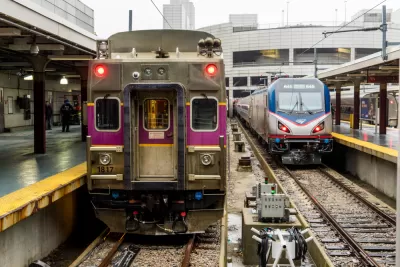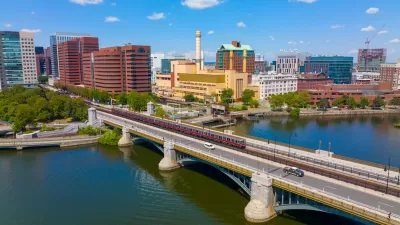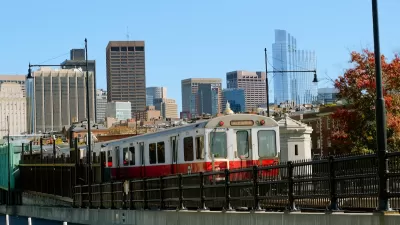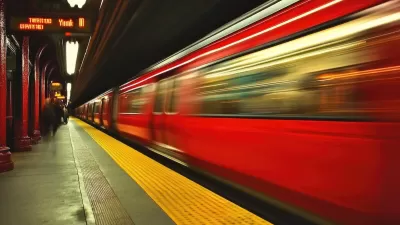Some lawmakers and residents think the management of Boston transit should shift to the state’s department of transportation, but would that solve the troubled system’s problems?

According to a Boston.com article by Zipporah Osei, Massachusetts state leaders are considering disbanding Boston’s beleaguered transit agency and shift the system to the state Department of Transportation (MassDOT).
A Boston.com reader survey found that many residents agree. “Although we have been told that MBTA management has a plan, it appears that every day they are responding to another major incident. I believe that fresh management is needed and the best thing to do at this point is to combine the MBTA with MassDOT,” said Brittany from Roslindale.
“Some readers, however, are skeptical of the state agency’s ability to take on the needs of the MBTA.” As one reader notes, “The MBTA isn’t a statewide concern. People in the Berkshires don’t care if it works. If it’s merged into MassDOT, it’ll quickly become an unwanted stepchild and the quality will decline further.”
Multiple readers suggest that the problem at the heart of the MBTA’s dysfunction is funding. “Increased funding for maintenance. Politicians always want to fund new projects so they can have photos at ribbon cuttings. Maintenance is more important but has fewer photo ops,” said reader Amy P.
FULL STORY: ‘MBTA needs to go’: Here’s why readers say the agency can’t be saved

Study: Maui’s Plan to Convert Vacation Rentals to Long-Term Housing Could Cause Nearly $1 Billion Economic Loss
The plan would reduce visitor accommodation by 25,% resulting in 1,900 jobs lost.

North Texas Transit Leaders Tout Benefits of TOD for Growing Region
At a summit focused on transit-oriented development, policymakers discussed how North Texas’ expanded light rail system can serve as a tool for economic growth.

Using Old Oil and Gas Wells for Green Energy Storage
Penn State researchers have found that repurposing abandoned oil and gas wells for geothermal-assisted compressed-air energy storage can boost efficiency, reduce environmental risks, and support clean energy and job transitions.

From Blight to Benefit: Early Results From California’s Equitable Cleanup Program
The Equitable Community Revitalization Grant (ECRG) program is reshaping brownfield redevelopment by prioritizing projects in low-income and environmental justice communities, emphasizing equity, transparency, and community benefits.

Planting Relief: Tackling Las Vegas Heat One Tree at a Time
Nevada Plants, a Las Vegas-based nonprofit, is combating the city’s extreme urban heat by giving away trees to residents in underserved neighborhoods, promoting shade, sustainability, and community health.

How Madison’s Tree Planting Efforts Are Growing a Healthier Community
Madison’s annual tree planting initiative is enhancing environmental resilience, public health, and community livability by adding 1,400 carefully selected trees citywide, with strong community and institutional support for urban forestry.
Urban Design for Planners 1: Software Tools
This six-course series explores essential urban design concepts using open source software and equips planners with the tools they need to participate fully in the urban design process.
Planning for Universal Design
Learn the tools for implementing Universal Design in planning regulations.
Ascent Environmental
Borough of Carlisle
Institute for Housing and Urban Development Studies (IHS)
City of Grandview
Harvard GSD Executive Education
Toledo-Lucas County Plan Commissions
Salt Lake City
NYU Wagner Graduate School of Public Service





























